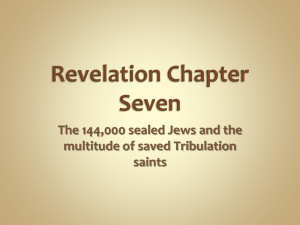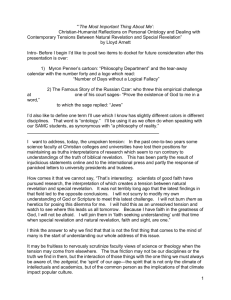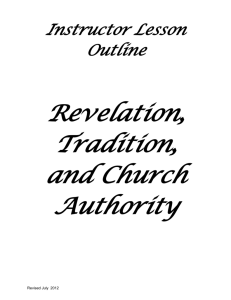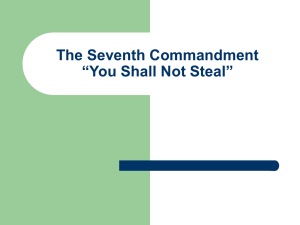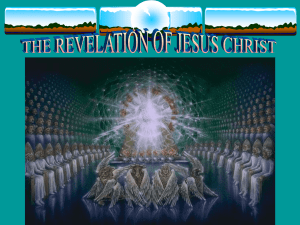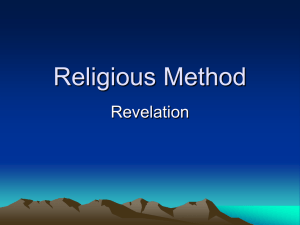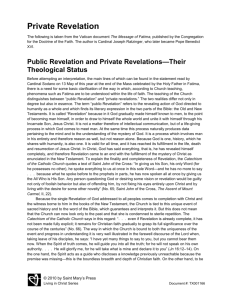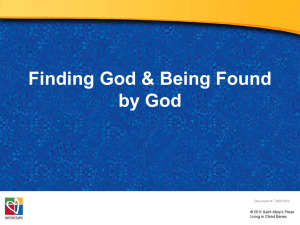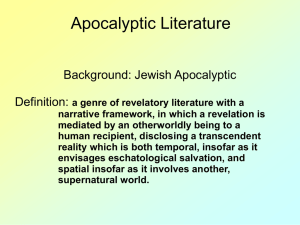Catholic Catechism Study: History, Structure, & Content
advertisement
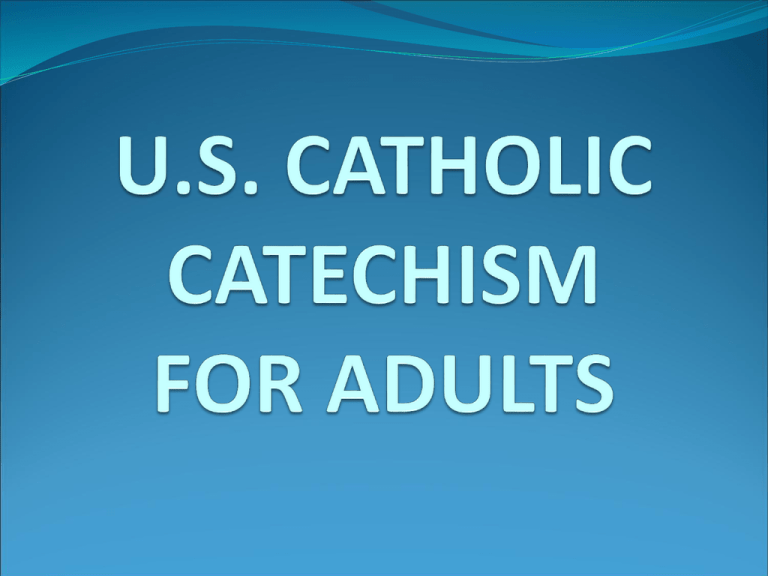
The Gift of the teaching tradition and Magisterium of the Church. The History of Catechisms: First 1500 years, an oral tradition. Root meaning of the word “Catechism” in Greek: “To Echo.” “Speak and echo” method of catechesis evolved into the question and answer format. This approach evident in popular Catechism of St. Peter Canisius (d.1597) and St. Robert Bellarmine (d. 1621). The Roman Catechism (1556) developed during and after the Council of Trent (1563). Enduring sourcebooks for local catechisms last edition reprinted in 1978. The U.S. Baltimore Catechism originated in 1884 at the Third Plenary Council of Baltimore. 421 questions and answers in 37 Chapters. Gave unity to teaching and understanding of the Catholic faith. Impact until the Second Vatican Council in 1962. The Challenge of Blessed John XXIII to articulate a vision to guard and protect the deposit of Christian doctrine – that is more accessible to Christian faithful and to all people of good will. Catechism of the Catholic Church 1992. Result of Synod of Bishops contains 36 chapters. 1. 2. 3. 4. Profession of Faith Celebration of the Christian mystery Life in Christ Christian Prayer Incorporates heritage of Doctors, Fathers, Saints of the Church and sheds light on contemporary situations, problems, questions. United States Catholic Catechism for Adults – an adaptation of the CCC, 2006. Contents: 1) 2) 3) 4) Creed Sacraments Moral life Prayer Structure of each chapter: 1. Story or lesson of faith 2. Teaching 3. Relationship of teaching to culture 4. Questions for discussion 5. Meditation and prayer CHAPTER I: “MY SOUL LONGS FOR YOU, O GOD” Ps. 42:2 Story: St. Elizabeth Ann Seton Content: Universal desire for God (CCC #27). This quest answered in three ways: Creation The human person Revelation (greatest & most essential) Creation: “The heavens declare the glory of God.” Ps. 19:2 Through the Human Person: “I praise you, so wonderfully you made me.” Ps. 139:14 Throughout history, people have yearned for God. God’s inherent attractiveness in human life. A Generation of Seekers: - RCIA - People’s search CHAPTER 2: GOD COMES TO MEET US God Reveals a Plan of Loving Goodness (CCC #50-67) God Reveals His Holy Name: Moses and burning bush Numerous occasions of God’s revelation in Old Testament. Gradual revelation (Abraham & Moses) Hebrews 1:1-2 “In Times past, God spoke in partial and various ways.” “He was manifested in the flesh”…. 1 Tim 3:16 Revelation: Self disclosure of the Living God Requires faith No new public revelation until the final glorious manifestation of Jesus. All that is needed has already been revealed. Private revelation – Lourdes and Fatima -nothing new but an inspiration. The Gospel and Culture “The split between the Gospel and culture is without a doubt the drama of our time.” Evangelii Nuntiandi #20 (Pope Paul VI) Religion not in vacuum. History taught from secular standpoint. Marginalization of religion. Bring Gospel values into culture. Change is slow. Dealing with culture means to deal with people. Rich tradition of Catholic Church. CHAPTER 3: PROCLAIM THE GOSPEL TO EVERY CREATURE Mk 16:15 Transmission of Divine Revelation (CCC #74-133) Handing on the Faith Filled with hope and faith. Teaching faith more effectively. Deepen understanding of doctrine. Medicine of mercy. Unity in Church, ecumenism, interreligious, relationships. Transmitting God’s Revelation: Sacred tradition – we do not believe in Sola Scriptura Sacred scripture - Interpretation of Scripture – spiritual and literal sense Three spiritual senses: 1. Allegorical sense – crossing of the Red Sea 2. Moral sense – St Paul: they were “written for our instruction” (1 Cor 10) 3. Anagogical sense – Church is a sign of the heavenly Jerusalem (CCC #117) Other Biblical Interpretations: Biblical literalism (fundamentalism) Historical reductionism (desacralization). Pontifical Biblical Commission explains: 1. Denial of supernatural order. 2. Denial of God’s intervention in the world through Revelation. 3. Denial of the possibility and existence of miracles. 4. Incompatibility of faith and historical truth (religion & science). 5. Denial of the historical value of the nature of the documents of Revelation. Scripture: God’s revealed word under guidance and inspiration of the Holy Spirit – God’s words put in human words.

